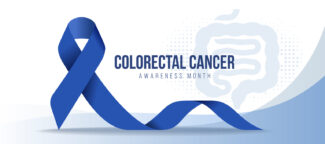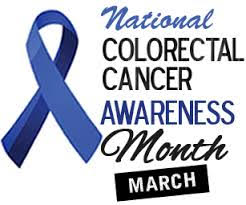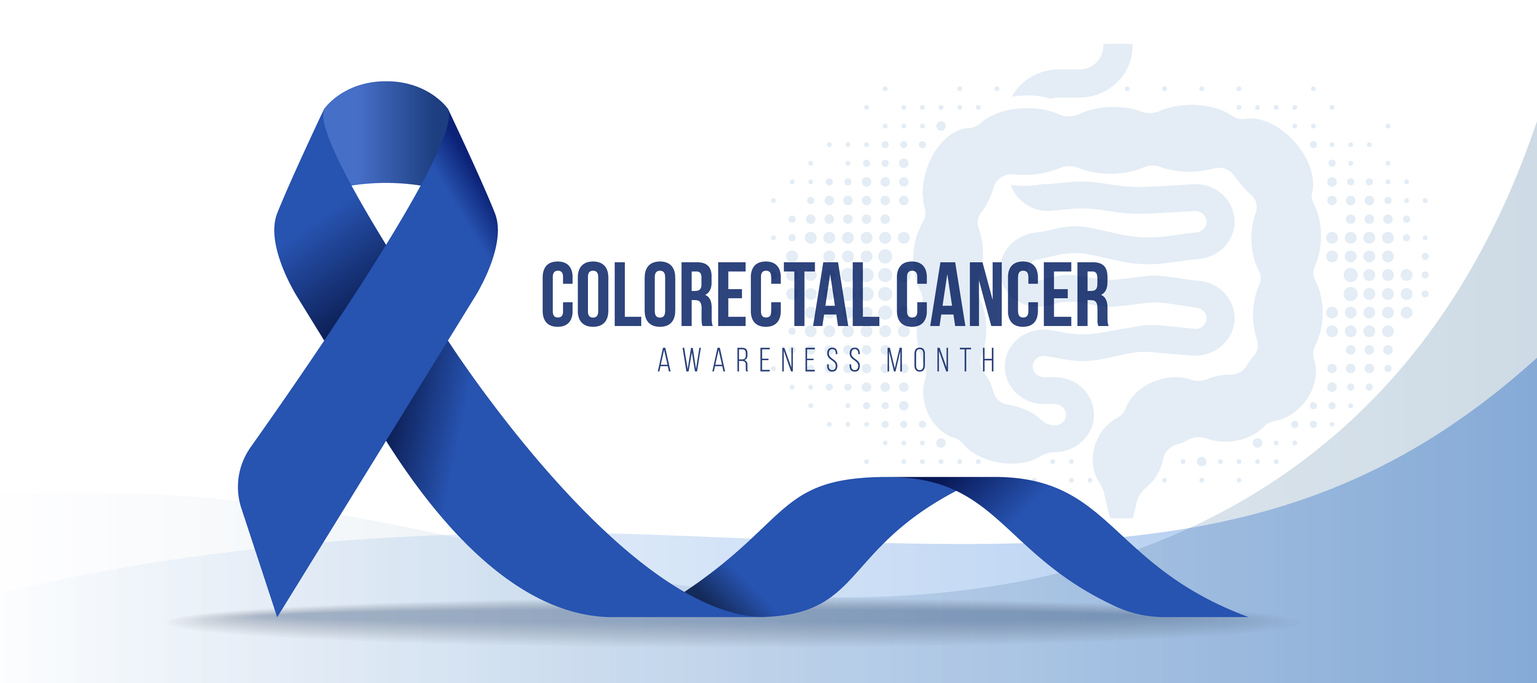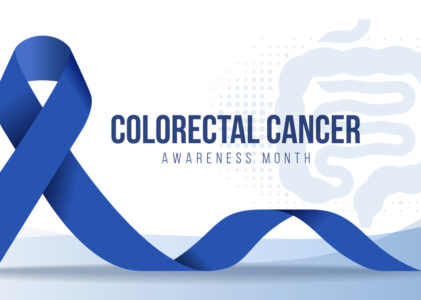
March is dedicated to Colorectal Cancer Awareness Month, an essential time to focus on the significance of awareness, screening, and the early detection of colorectal cancer.
As a major cause of cancer-related deaths, colorectal cancer impacts the lives of many. However, with informed knowledge and appropriate action, we have the power to combat this disease effectively.
This guide provides a detailed exploration of the risk factors, screening methods, prevention strategies, detection techniques, and survival rates associated with colorectal cancer, aiming to empower you with the knowledge to protect your health.
Colorectal Cancer Awareness Month: What is Colorectal Cancer?
Colorectal cancer is a broad term to describe cancer of the colon, the rectum, or both. It may be called colon or rectal cancer, but they are very similar. Most colorectal cancers start as a polyp, a growth on the inner lining of the colon or the rectum. Polyps can develop into cancer over many years, but not all polyps turn into cancer as there are two main types of polyps.
Hyperplastic polyps and inflammatory polyps are the most common and are not pre-cancerous. The other type is called Adenomatous Polyps (Adenomas) and are considered to be pre-cancerous as they can develop into cancer.
In addition to the type of polyp, other characteristics contribute to the risk of developing colorectal cancer. If the polyp is larger than 1 cm, there are more than two, and there is dysplasia after removal (dysplasia is abnormal cells but not yet cancer) there is an increased risk of developing cancer.
The Prevalence of Colorectal Cancer
According to the American Cancer Society, the anticipated figures for colorectal cancer cases in the United States for the year 2024 highlight its significant impact:
- An estimated 106,590 new cases of colon cancer are expected, divided almost equally between men (54,210 cases) and women (52,380 cases).
- Additionally, around 46,220 new cases of rectal cancer are forecasted, with a higher incidence in men (27,330 cases) than in women (18,890 cases).
The trend in colorectal cancer diagnoses has seen a general decline since the mid-1980s, a positive change attributed largely to increased screening efforts and modifications in lifestyle-related risk factors. Specifically, from 2011 to 2019, the incidence rate of colorectal cancer has decreased by approximately 1% annually. However, this improvement is primarily observed in the older population.
Conversely, for individuals under 55 years of age, the incidence rates have experienced a worrying rise of 1% to 2% per year since the mid-1990s, signaling a need for heightened awareness and preventative measures among younger demographics.
 Identifying Risk Factors for Colorectal Cancer
Identifying Risk Factors for Colorectal Cancer
Understanding the risk factors for colorectal cancer is essential in the fight against this disease. While some risk factors are inherent and cannot be changed, others are influenced by lifestyle choices and therefore can be managed to lower the overall risk of developing colorectal cancer.
Here’s an in-depth look at these factors:
-
- Age: The risk of colorectal cancer increases with age. It’s most common in individuals over 50, but there’s a growing incidence in younger adults, highlighting the importance of awareness across all age groups.
- Family History and Genetics: Having a close relative with colorectal cancer or a genetic predisposition, such as familial adenomatous polyposis (FAP) or Lynch syndrome, significantly increases your risk.
- Personal Health History: A personal history of adenomas, particularly if they were large or numerous, or having inflammatory bowel disease (IBD), including ulcerative colitis or Crohn’s disease, elevates your risk.
- Lifestyle Factors:
- Diet: Diets high in red and processed meats (like pork, beef, lamb, liver, or processed meats) are linked to a higher risk.
- Physical Activity: A sedentary lifestyle increases the risk, emphasizing the importance of regular exercise.
- Weight: Being overweight or obese is a known risk factor.
- Substance Use: Smoking and excessive alcohol consumption also contribute to an increased risk.
- Other Factors: Conditions such as diabetes or certain types of radiation therapy to the abdomen can also increase the risk of developing colorectal cancer.
It’s crucial to recognize that while some of these factors are beyond individual control, others can be addressed through lifestyle changes. Maintaining a healthy diet rich in fruits, vegetables, and whole grains, regular physical activity, and avoiding tobacco and excessive alcohol can significantly reduce your risk of colorectal cancer. Additionally, being aware of your family’s medical history and discussing it with your healthcare provider can lead to earlier and more frequent screening, potentially catching cancer at an early, more treatable stage.
For individuals concerned about their risk factors, the National Cancer Institute offers a Colorectal Cancer Risk Assessment Tool. It’s a valuable resource for assessing personal risk and can be a useful discussion starter with your doctor about screening options and prevention strategies.
Screening is Your Best Defense Against Colorectal Cancer
Screening plays an indispensable role in the early detection and prevention of colorectal cancer, dramatically enhancing the likelihood of successful treatment outcomes. Understanding when to begin screening, the variety of methods available, and the importance of screening tailored to individual risk profiles is essential for optimal health management.
When to Start Screening
- General Guidelines: For those at average risk of colorectal cancer, screenings should commence at age 45. This guideline stems from research indicating the effectiveness of early detection in improving treatment success rates.
- Customized Screening Schedules: Individuals with heightened risk factors—such as a family history of colorectal cancer, certain genetic conditions, or a personal history of inflammatory bowel disease—may need to begin screening earlier. Discussions with a healthcare provider can help determine the most appropriate screening timeline based on individual risk factors, including ethnicity, family history, and lifestyle habits.
Screening Methods and Recommendations
A variety of screening tests are available, each with specific recommendations for frequency to ensure effective monitoring and early detection of polyps or colorectal cancer:
- CT Colonography (Virtual Colonoscopy): Recommended every 5 years, this non-invasive test uses CT scanning to provide detailed images of the colon and rectum, helping identify any abnormalities without the need for sedation.
- Colonoscopy: This test, recommended every 10 years, is considered the gold standard for colorectal cancer screening. It allows for a comprehensive examination of the colon’s interior lining and the removal of polyps during the procedure.
- Double-Contrast Barium Enema: Suggested every 5 years, this X-ray examination of the colon and rectum provides images that can help detect abnormalities.
- Flexible Sigmoidoscopy: Also recommended every 5 years, this test involves the insertion of a flexible, lighted tube to examine the rectum and the lower part of the colon.
Tests Primarily Used for Cancer Detection
Some screening tests are specifically designed to detect the presence of cancer rather than polyps:
- Guaiac-Based Fecal Occult Blood Test (gFOBT): This annual test checks for hidden blood in the stool, which can be an early sign of cancer.
- Fecal Immunochemical Test (FIT): Recommended yearly, FIT is a newer test that also detects hidden blood in the stool but is more sensitive than gFOBT.
- Stool DNA Test: Conducted every three years, this test looks for specific DNA markers in stool samples that could indicate the presence of polyps or cancer.
The Importance of Personalized Screening
Talking to your healthcare provider about your risk factors and the most suitable screening options is crucial. The American Cancer Society emphasizes the significance of starting colorectal cancer screening at age 45 for those without a family history, adjusting the frequency and method of screening based on individual risk assessments.
For comprehensive information on colorectal cancer screening, including detailed guidelines and how to initiate the screening process, visit Colorectal Cancer Alliance’s Screening and Prevention. Remember, early detection through regular screening is key to effectively preventing and treating colorectal cancer.
Strategies for Prevention
Lifestyle adjustments are a powerful way to prevent colorectal cancer. Consider these preventive measures:
- Diet: Eat a diet rich in fruits, vegetables, and whole grains while limiting red and processed meats.
- Physical Activity: Engage in regular exercise.
- Weight Management: Maintain a healthy weight.
- Limit Alcohol and Avoid Smoking: Reduce alcohol consumption and avoid smoking.
The Importance of Early Detection
Detecting colorectal cancer early can drastically improve the likelihood of successful treatment. Be aware of symptoms such as:
- Changes in bowel habits
- Blood in the stool
- Abdominal discomfort
- Unexplained weight loss
Remember, many cases of colorectal cancer may not present symptoms initially, making regular screenings vital.
Survival Rates: A Glimpse of Hope
Survival rates for colorectal cancer have been improving, thanks to advancements in screening and treatment:
- Localized Stage Colorectal Cancer: The five-year survival rate is about 90%.
- Early Detection: Key to improving treatment outcomes and increasing survival rates.
Greater Waterbury Imaging Center: Your Ally in Awareness
Greater Waterbury Imaging Center (GWIC) is committed to enhancing colorectal cancer awareness and supporting early detection through advanced screening technologies. Please talk to your doctor about recommended screening options.
As we observe Colorectal Cancer Awareness Month, Greater Waterbury Imaging Center urges everyone to take proactive steps toward their health. Understanding risk factors, adopting preventive measures, and adhering to screening recommendations are crucial actions in the fight against colorectal cancer. Contact GWIC for all your MR imaging needs.


